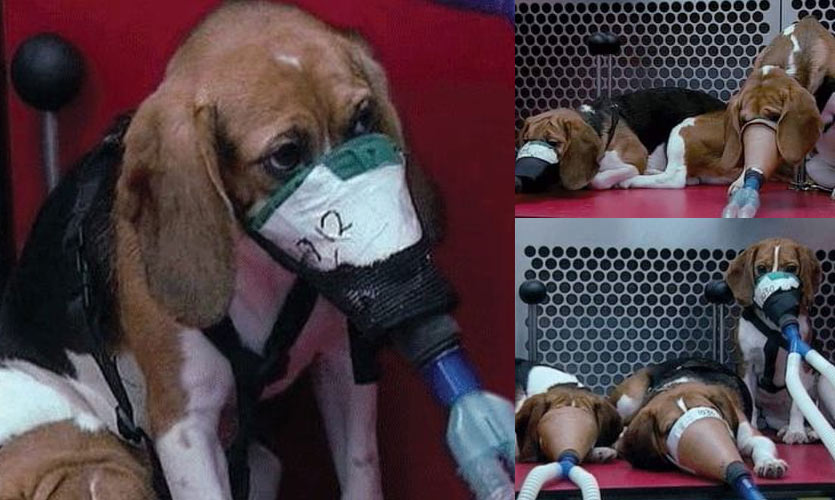There is a dearth of data that proves cigarettes are harmful to humans. However, can inhaling cigarette smoke induce the same effect on animals? Several tests have explicitly proven that the answer is no. Despite this fact, a number of tobacco companies continue to use animals like mice, rats, hamsters and even dogs for testing of cigarettes and tobacco.
Experimenters at companies like the Swiss-American giant, Philip Morris, subject animals to more than one method of testing tobacco which includes forcing them to breathe cigarette smoke for nearly 6 hours, everyday. Animals have a natural tendency of avoiding cigarette smoke, so thousands of lab rats are put inside small containers forcibly, and tobacco smoke is pumped directly to their noses for a span of 90 days, before being dissected. The American firm, R.J. Reynolds also smears cigarette tar on the skin of mice and rats, along with forcing them to inhale smoke. This particular test is twice as barbaric, since half the rats die even before the study is completed. For some, their skin comes off as a result of skin tumours. The surviving lot faces no better outcome since they’re dissected for further study.
Cigarette testing does not have the same impact on animals as it does on humans. After years of testing, studies concluded that rodent lungs and human lungs do not react in similar fashion under identical circumstances. Moreover, an observational study of humans who have been consuming cigarettes for long, procures better results compared to controlled animals lab tests. “If the tobacco industry wants to continue developing and marketing products that cause addiction and kill people, it should do so without the help of the government and without harming animals,” PETA has stated on several occasions.
Yet, the harmful testing has not been pulled back by some major companies. In fact, at the Oregon National Primate Research Center, tubes are surgically inserted inside pregnant rhesus monkeys and they are exposed to nicotine during the last four months of pregnancy. Merely a few days before they’re set to deliver, their unborn fetuses are cut out, so that the consequences of the exposure can be studied.
PETA has been drawing attention to these unethical tests since 2005, and several archaic methods are no longer practiced like attaching tubes to the necks of dogs and monkeys and making them inhale cigarette smoke, or strapping masks to their noses directly and pumping the smoke. Under the guise of safety and reducing toxicity of cigarettes and tobacco, thousands of animals have been put through these horrendous procedures and have lost their lives with no conclusive results in hand. Many countries like Germany, Belgium or the UK have ordered a complete ban on animal testing for cigarettes. However, major corporations like Philip Morris International, which is the largest producer of all the variants of the Marlboro cigarettes, continue to partake in animal cruelty, despite having means to use other methods, like the in vitro technology or human-based research. “Studies that use in vitro methods have the ability to assess potential modified-risk tobacco products more quickly and to provide more specific, actionable and human-relevant data than do animal studies. In vitro models could also better reflect genetic and environmental differences within the human population,” writes George Gay, editor of the Tobacco Reporter publication.
While companies like Imperial Tobacco (ITC) and Lorillard have official policies in place now against animal testing of cigarette smokes, it is still a lengthy fight before such callousness becomes extinct. There is no argument that smoking and tobacco have harmful, possibly fatal effects on the human body, yet if one chooses consumption entirely of one’s own accord, awareness of these experiments is crucial. PETA’s fight against R.J. Reynolds and Philip Morris is ongoing at present, but the organization hopes to terminate such practices in a few years.
Also read: Manual Scavenging: A Shameful Practise That Has Outgrown Its Existing Numbers










